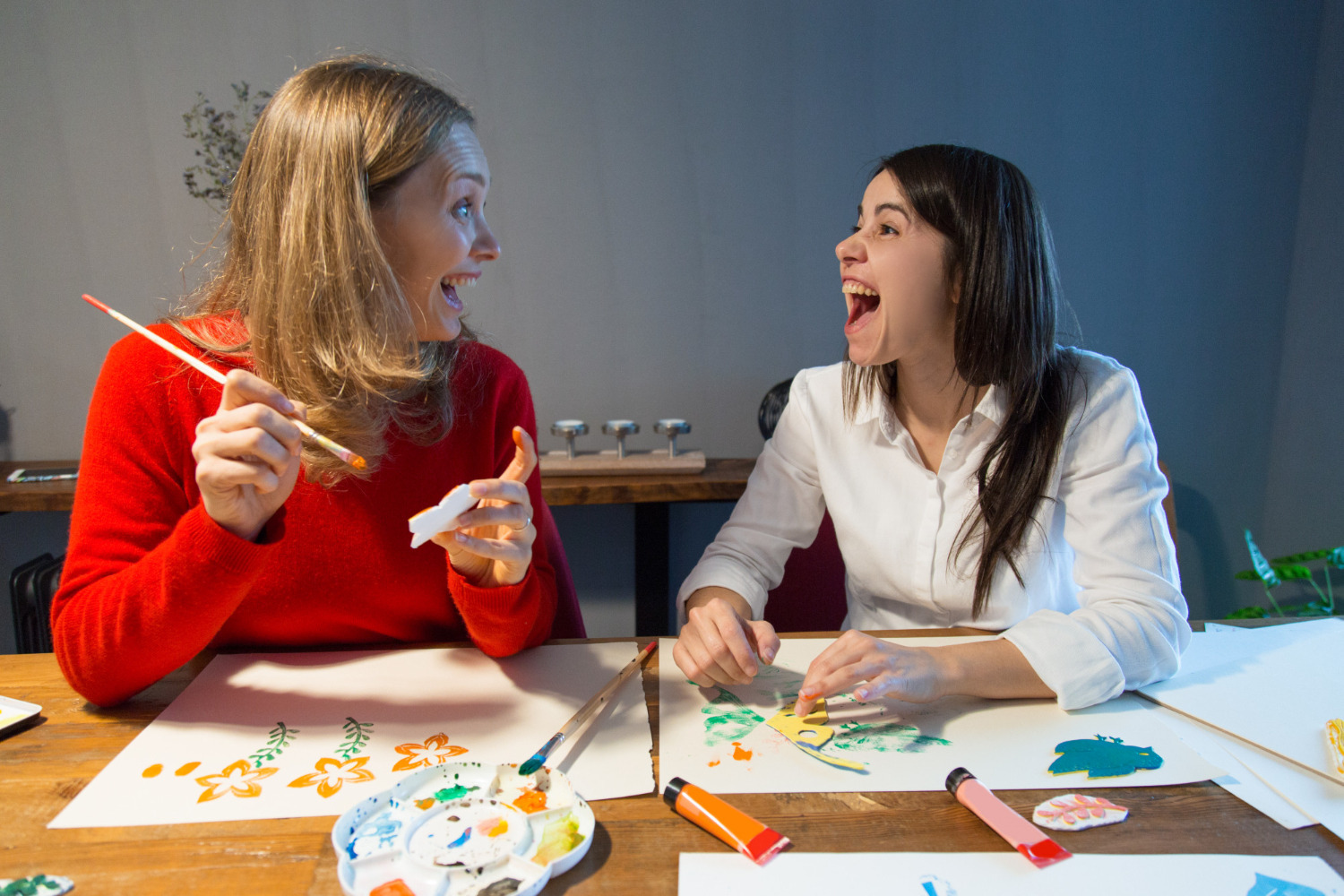Children face emotional challenges just as adults do, but they often lack the tools to express what they’re going through. That’s why Children’s therapy solutions are necessary. Whether it’s anxiety, trauma, behavioral struggles, or social difficulties, therapy offers a safe and structured space for children to explore their feelings, develop coping strategies, and rebuild confidence. By using age-appropriate techniques like play therapy, talk therapy, and creative expression, children’s therapy addresses emotional wounds and fosters growth in a nurturing environment. This blog explores how therapeutic support not only helps kids process their emotions but also empowers them to heal from within and thrive socially, emotionally, and academically. If you’re wondering how therapy works for children or when to seek help, this guide will walk you through every essential aspect.
What Is Children’s Therapy and Why It Matters
Children’s therapy is a specialized form of counseling designed to help kids understand and manage their emotions, behavior, and mental health. Unlike adult therapy, it often incorporates creative, play-based, or interactive approaches that resonate with a child’s developmental level. Therapists may use storytelling, drawing, role-play, or games to help children express thoughts they can’t yet verbalize. This type of therapy addresses a wide range of concerns, including anxiety, trauma, ADHD, grief, and behavioral issues. More than just treatment, it offers children the tools to build resilience, self-awareness, and healthy communication habits. Early intervention through therapy can lead to long-term emotional stability and improved relationships with peers and family. Understanding why children’s therapy matters is the first step toward creating a supportive environment where young minds can grow, heal, and develop the confidence they need to thrive throughout life.
Emotional Struggles in Children: A Closer Look
Understanding emotional struggles in children is a vital step in recognizing the need for early intervention. Kids may not always verbalize what they feel, but their behavior often tells the story, withdrawal, aggression, clinginess, or sudden changes in mood can all be signs of emotional distress. These struggles may stem from academic pressure, bullying, family conflicts, grief, or even seemingly small life changes that feel overwhelming to a young mind. Without proper guidance, children might internalize these feelings, leading to anxiety, depression, or behavioral issues. Therapy provides a space where children can safely process these emotions with the help of a trained professional. By identifying the root cause of their emotional turmoil, therapists help children develop healthier ways to express themselves, build resilience, and reestablish emotional balance, key steps that set the foundation for long-term mental well-being and personal growth.
Early Signs Your Child May Need Support
Recognizing the early signs that your child may need emotional or psychological support is crucial for timely intervention. While occasional mood swings or behavioral changes are normal, persistent patterns can indicate deeper struggles. If your child becomes unusually withdrawn, frequently expresses anger, shows a sudden drop in academic performance, or has trouble sleeping, these may be red flags. Other signs include excessive worry, fearfulness, regression in behavior (such as bedwetting or clinginess), or difficulty forming friendships. In younger children, these challenges often surface through play, while older kids may verbalize their distress, or, at times, completely shut down. Trust your instincts as a parent; if something feels off, it’s worth exploring further. Just To Talk therapy can provide a safe outlet for your child and offer tools to both parents and children to navigate complex emotions and restore balance in daily life.
How Therapy Creates a Safe Space for Kids
Creating a safe and supportive environment is one of the most essential aspects of children’s therapy. Many children struggle to articulate their emotions at home or in school due to fear, confusion, or lack of understanding. Therapy introduces them to a space free from judgment, where they’re encouraged to express themselves openly, through words, play, drawing, or storytelling. Just To Talk therapists are trained to build trust gently, using child-friendly approaches that match developmental levels and emotional needs. Over time, this secure environment becomes a place where children feel seen, heard, and validated. In this space, their worries are acknowledged, and their voices matter. As children begin to trust the process, they’re more likely to explore difficult emotions and experiences, laying the groundwork for lasting healing. This safe space is often the first step toward emotional growth, stability, and improved self-esteem.
The Role of a Therapist in a Child’s Growth
A child therapist plays a vital role in guiding young minds through emotional development and behavioral growth. Unlike traditional teaching or parenting methods, therapists use specialized techniques tailored to a child’s age, personality, and emotional needs. Through consistent sessions, they help children identify their feelings, process difficult experiences, and learn healthy coping mechanisms. Whether using play, art, talk, or movement, the therapist becomes a trusted figure who listens without judgment and encourages emotional expression. This safe therapeutic bond builds a foundation for resilience and emotional intelligence. In many cases, therapists also work alongside parents and educators to create a supportive environment at home and school. By addressing concerns early, whether it’s anxiety, trauma, or developmental delays, a therapist can shape a child’s ability to navigate challenges and build meaningful connections throughout life, ultimately supporting their long-term emotional and psychological well-being.
Play Therapy, Healing Through Imagination
One of the most effective approaches in children’s therapy is play therapy, a method that taps into a child’s natural language: play. While adults often talk through their emotions, children communicate through toys, drawings, games, and imaginative scenarios. Play therapy allows therapists to observe behaviors, identify emotional struggles, and gently guide children toward healing without the pressure of direct conversation. It’s especially helpful for children facing trauma, anxiety, grief, or developmental challenges, as it provides a safe and non-threatening outlet for expression. Through pretend play, storytelling, and role-playing, children can work through difficult experiences, build problem-solving skills, and gain emotional clarity. The power of imagination becomes a bridge between their inner world and the therapist’s support, making healing not only possible but often joyful. Play therapy is more than fun, it’s a carefully guided path toward emotional resilience and inner peace.

Art Therapy, Expressing the Unspoken
Art therapy offers children a unique way to express feelings they might struggle to put into words. Through drawing, painting, or sculpting, kids can explore complex emotions like fear, sadness, or confusion in a safe, nonverbal way. This form of therapy encourages creativity while helping therapists understand a child’s inner world more clearly. Unlike traditional talk therapy, art therapy allows children to communicate indirectly, reducing pressure and anxiety during sessions. It can be especially beneficial for younger kids or those with limited verbal skills. By creating artwork, children process difficult experiences and begin to release emotional tension, paving the way for healing. Over time, art therapy helps kids build self-awareness, improve emotional regulation, and gain confidence. This gentle approach complements other therapeutic methods, making it a valuable tool in helping children cope, heal, and ultimately thrive.
How Does Talk Therapy Work for Children?
How does talk therapy work? Talk therapy for children is designed to create a comfortable and trusting environment where kids can openly express their thoughts and emotions. Unlike adult therapy, it uses simple language, storytelling, and sometimes play to help children communicate feelings they might not fully understand or find hard to share. Through guided conversations, therapists help children identify their emotions, understand their behaviors, and develop healthier coping strategies. Sessions often focus on building problem-solving skills and emotional awareness, tailored to the child’s age and needs. Parents may also be involved to support progress outside the therapy room. This approach encourages children to feel heard and understood, which is essential for healing and growth. Overall, talk therapy equips children with tools to manage challenges, build resilience, and improve their relationships, setting a strong foundation for long-term emotional well-being.
Helping Children Cope with Anxiety and Stress
Anxiety and stress can affect children in many ways, often leading to restlessness, irritability, or withdrawal. Helping kids cope with these feelings early on is crucial for their overall well-being. Children’s therapy provides practical tools tailored to their age and understanding, such as deep breathing exercises, mindfulness activities, and guided play, which help them manage overwhelming emotions. Therapists also work with children to identify triggers and develop healthy coping mechanisms, making stress easier to handle. Importantly, therapy offers a supportive environment where kids feel safe to share their worries without judgment. Parents and caregivers often learn strategies to reinforce these skills at home, creating a consistent support system. Addressing anxiety and stress through therapy not only calms immediate symptoms but also builds resilience. Empowering children to face future challenges with greater confidence and emotional strength. This ongoing process plays a key role in helping children thrive.
Supporting Kids Through Grief and Loss
Grief and loss can be overwhelming for children, who often struggle to understand and express their emotions. Supporting kids through these difficult times requires patience, empathy, and specialized therapeutic approaches. Children’s therapy provides a safe environment where kids can explore their feelings without judgment. Therapists use age-appropriate methods such as storytelling, play, or art to help children process loss. Whether it’s the death of a loved one, a family separation, or moving away from familiar places. Through therapy, children learn healthy ways to cope with sadness and confusion, preventing these emotions from becoming overwhelming or isolating. Additionally, therapy helps build resilience by teaching children that it’s okay to feel vulnerable and that healing is possible. With this support, kids gradually regain emotional balance. Also, develop the strength to move forward, enhancing their ability to thrive despite life’s challenges.
Managing Anger and Outbursts with Professional Guidance
Managing anger and emotional outbursts can be especially challenging for children who are still learning how to regulate their feelings. Without the right support, these episodes may lead to strained relationships and frustration for both kids and their families. Professional children’s therapy provides effective tools to help young ones understand the root causes of their anger and express it in healthier ways. Therapists use techniques like deep breathing exercises, role-playing, and emotional identification to guide children toward recognizing triggers and controlling impulses. Over time, these strategies build emotional resilience and improve communication skills, allowing children to respond calmly in difficult situations. With consistent support, kids learn that anger is a natural emotion but doesn’t have to control their actions. This process not only eases family stress but also helps children thrive by fostering self-awareness and emotional balance.
How Couples Therapy Services Impact Children’s Emotional Health
The emotional well-being of children is closely tied to the health of their family environment. Couples therapy services play a vital role in improving the relationship between parents or caregivers. It directly benefits children’s emotional health. When couples work through conflicts, improve communication, and build stronger bonds, children experience a more stable and supportive home. This reduces stress and anxiety often caused by family tension or instability. Children pick up on their parents’ emotions, so seeing a healthy partnership teaches them how to handle feelings and resolve problems constructively. By addressing adult relationship issues through couples therapy, parents create a nurturing atmosphere where children feel safe to express themselves and heal from emotional difficulties. Ultimately, strengthening parental relationships sets a positive example. It supports a child’s ability to cope, heal, and thrive in all areas of life.

How Small Talk Counseling Services Can Make a Big Difference
Small talk counseling services provide a gentle, approachable way for children to open up about their feelings and challenges. Unlike formal therapy sessions, these conversations focus on casual, everyday dialogue that helps kids feel comfortable and understood. This relaxed environment encourages children who might be hesitant or anxious about therapy to express themselves more freely. Small talk acts as a bridge, gradually building trust between the child and counselor, which is crucial for deeper healing. Over time, these simple exchanges help children develop better communication skills, emotional awareness, and coping mechanisms. By valuing the power of conversation, small talk counseling supports kids in processing difficult emotions without pressure, making therapy feel less intimidating. This approach fits seamlessly into the broader goal of children’s therapy: helping young minds cope, heal, and thrive through meaningful connection and understanding.
Why the Best Financial Consulting Firms Support Mental Health Programs
As we explore how children’s therapy supports emotional well-being, it’s important to recognize the role of broader community support, including from financial consulting firms. The best financial consulting firms understand that mental health is a crucial component of overall productivity and long-term success, whether for individuals or organizations. By supporting mental health programs, these firms help create healthier environments where families and children can access the care they need. Investing in mental health initiatives not only benefits society but also reduces economic burdens associated with untreated emotional and psychological issues. These firms often collaborate with nonprofits or sponsor therapy services, making support more accessible to children and families who might otherwise struggle to afford it. This partnership between financial expertise and mental health advocacy highlights how a holistic approach strengthens communities, ensuring children have the resources to cope, heal, and thrive.
Supporting Kids Through Grief and Loss
Grief and loss can be confusing and overwhelming for children, who may struggle to understand and express their emotions. Children’s therapy provides a compassionate space where kids can safely explore their feelings related to loss. Whether it’s the death of a loved one, a family breakup, or moving away from familiar surroundings. Therapists use gentle techniques like storytelling, play, and art to help children identify. Process grief in ways that make sense to them. This support teaches children that their feelings are valid and offers healthy coping mechanisms to manage sadness and confusion. By addressing grief early, therapy helps prevent long-term emotional difficulties and fosters resilience. Through guided healing, children gradually learn to accept loss while finding ways to carry forward positive memories. Hope for the future, enabling them to regain stability and thrive in everyday life.
Setting and Achieving Personal Goals Through Therapy
Setting and achieving personal goals is a vital part of children’s therapy. It helps young clients build a sense of accomplishment and self-worth. Therapists work closely with children to identify realistic. Age-appropriate goals tailored to their unique needs, whether it’s improving communication skills, managing emotions, or overcoming fears. These goals provide clear direction and motivation throughout the therapy process. By breaking down larger challenges into smaller, manageable steps, children learn patience and persistence while celebrating each milestone reached. This structured approach encourages them to take ownership of their progress, fostering independence and confidence. As children experience success in meeting their goals, they develop essential life skills. It extends beyond therapy sessions, positively impacting their relationships, school performance, and overall well-being. Therapy not only supports healing but also equips kids with tools to thrive in everyday life.
Conclusion
Children’s therapy plays a crucial role in helping young minds cope with challenges, heal emotional wounds, and develop the skills needed to thrive. Through tailored approaches like talk therapy, play therapy, and goal-setting, therapy creates a supportive space where children feel understood and empowered. This journey encourages growth not only emotionally but also socially and academically, laying a foundation for lifelong resilience. When children receive the right therapeutic support early, they gain tools to navigate life’s difficulties with confidence. Recognizing when to seek help and choosing the right therapy can make all the difference in a child’s development. Ultimately, therapy is more than just treatment, it’s a path to healing, growth, and a brighter future for every child.


